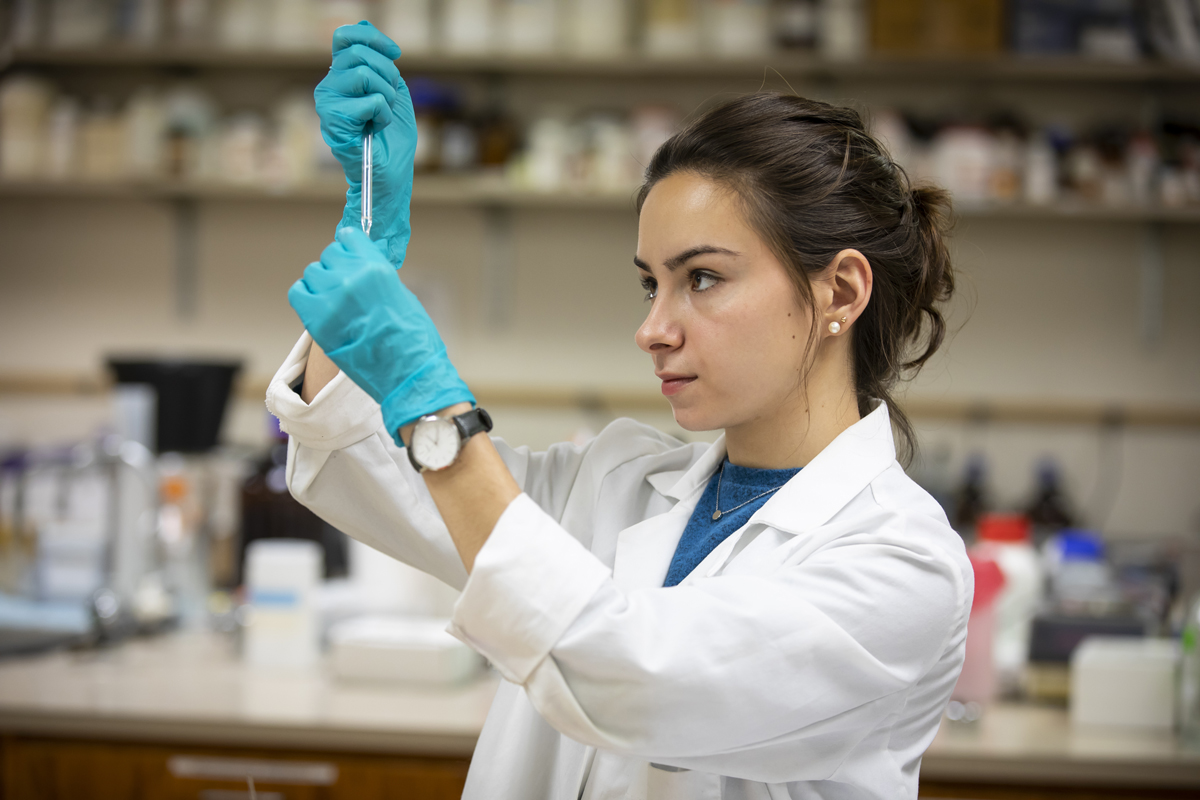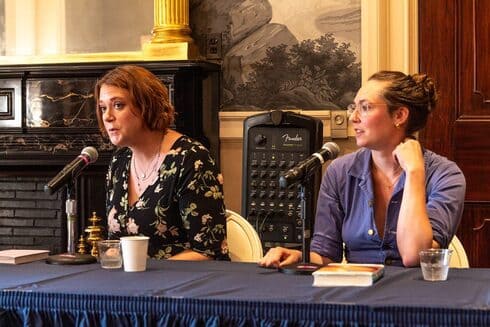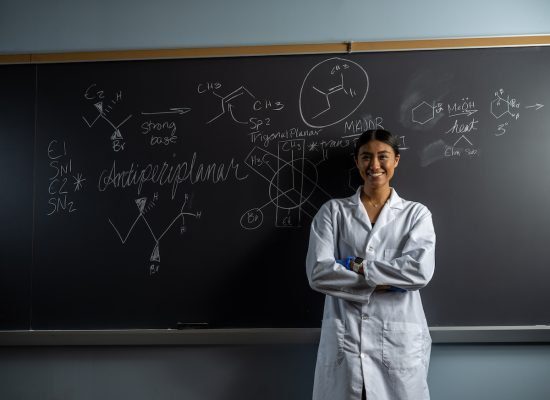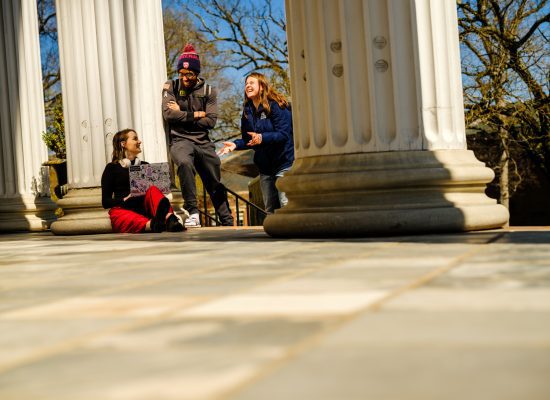Drew U Student Profile: Stefanie DeFronzo C’20
The Civic Scholar on dispelling the stereotype that scientists can’t write.
Enlarge

“I received all my training for my next steps in life while at Drew. I don’t think I could even fathom being an adult human being without the experiences that I’ve had here.”
Enlarge

Participating in RISE and DSSI (Drew Summer Science Institute) has been amazing. I’ve never heard of another program like it. Not only has Dr. [Marvin] Bayne helped me learn lab skills, but he has helped me understand how to make connections in a logical, mature way—how to communicate in the science world, whether it’s writing scientific literature or communicating with other scientists. The RISE fellows really care about you, and not just from an academic standpoint. They really want to help students move around the science world.
I came to Drew because it is a top 10 theatre school and I thought I was going to major in theatre. While other schools make you pick one focus, Drew sees that you have a lot of interests and says, “That’s awesome, you can do anything here. You can do theater and biochemistry and religion.”
With the Center on Religion, Culture and Conflict Summer Institute I got hands-on experience learning how to communicate with people who aren’t just like me. I grew up in a small town in upstate New York that didn’t have a lot of diversity. At the Summer Institute people come from around the world, and it was a great learning experience to be immersed in that and learn how to interact with people who aren’t the same as me.
Enlarge

I don’t like how people write in the science world. I became obsessed with writing poetry in third grade. My interests transitioned more towards science when my 10th grade teacher lit the chalkboard on fire (on purpose). But then I couldn’t understand scientific literature, and I thought, “If I could just combine my writing skills and my science skills, I can remove that stereotype that scientists can’t write.”
I received all my training for my next steps in life while at Drew. I don’t think I could even fathom being an adult human being without the experiences I’ve had here. I’m inspired now to go into the real world and be a scientist, or whatever I’m going to be, but I’m also inspired to help other people have the same experiences that I did. As a Civic Scholar, my project is a science fair for middle school students held at Drew—a way to give the next generation some of the same experiences that I’ve had here.
Communication is the key to everything, and all of the immersive experiences I’ve been involved in at Drew have been sparked by learning and knowing how to communicate with other people. If you can’t or don’t want to communicate with other people, you can go to class, do the homework, go to class, do the homework, and keep yourself confined in a solitary cycle. But that’s not human-to-human communication, and Drew does an amazing job molding students to communicate in the real world where that really matters.


